ABOUT US
DPG Foreign Affairs Review
Cover Photographs:
© 2020 by the Delhi Policy Group
Delhi Policy Group
Core 5A, 1st Floor,
India Habitat Centre,
Lodhi Road, New Delhi-110003
www.delhipolicygroup.org
1. Raisina Dialogue 2020
21@20: Navigating the Alpha Century
The 5th edition of India’s flagship Global Conference covering both geopolitics and geo-economics, the Raisina Dialogue, was held in New Delhi from January 14- 16, 2020.
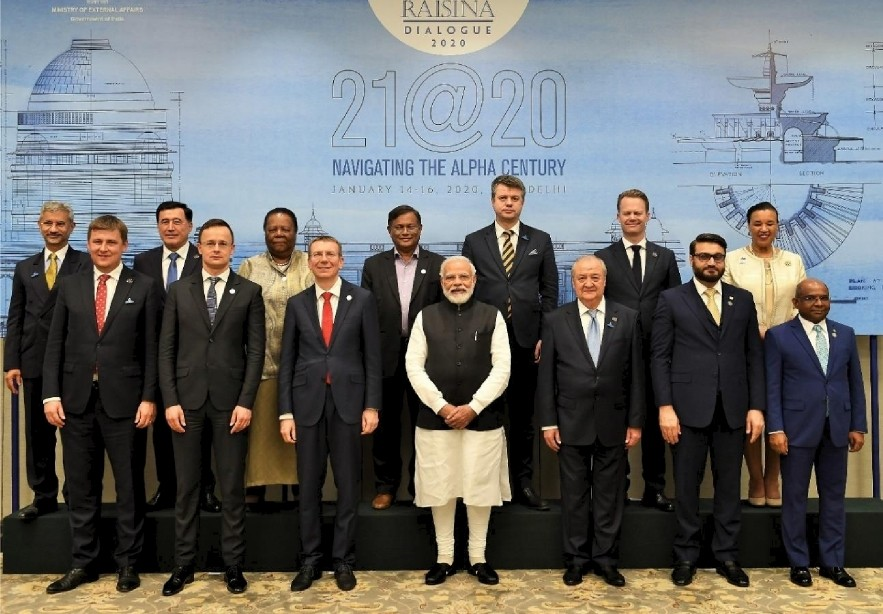
The Dialogue drew high-level participation which included the Prime Minister and the External Affairs Minister of India; Foreign Ministers of Australia, Denmark, Estonia, Uzbekistan, Russia, South Africa, Iran, Hungary, Maldives, Latvia and the Czech Republic; the Secretary General of the Shanghai Cooperation Organisation (SCO); Secretary General of the Commonwealth; and the Vice President of the European Commission. Former leads of state / government of New Zealand, Sweden, Denmark, Afghanistan, Bhutan, Canada and South Korea also participated in the Dialogue. The NSA of Afghanistan, the Deputy NSA of the United States and several Ministers of State also presented their ideas at the 5th Raisina Dialogue.
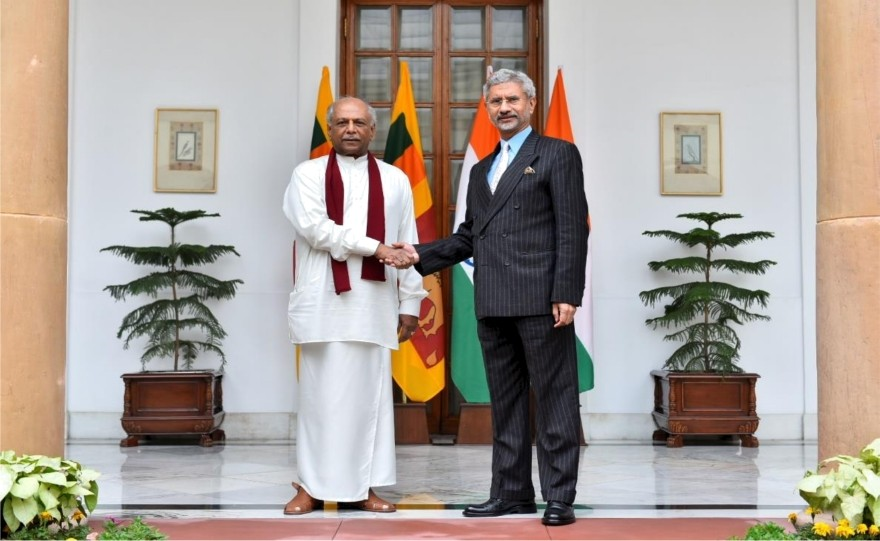
1Indrani Bagchi, “MEA starts its biggest internal rejig in 50 years”, Times of India, January 31, 2020. Link - https://timesofindia.indiatimes.com/india/mea-starts-its-biggest-internal-rejig-in-50-years/articleshow/73783309.cms
Founded in 1994, the Delhi Policy Group is among India’s oldest independent think tanks with its primary focus on international and strategic issues of critical national interest. Over the past decades, the Delhi Policy Group has established itself in both domestic and international circles, particularly in the area of national security.
In keeping with India’s increasing global profile as a leading power and the accompanying dynamism of India’s foreign and security policy, the Delhi Policy Group has expanded its focus areas to include India’s broader regional and global role; India’s initiatives to strengthen its strategic periphery; India’s political, security and connectivity challenges and policies across the Indo-Pacific; and the strategic partnerships that advance India’s rise. To support these goals, the DPG undertakes research, publishes policy reports and organises conferences on strategic and geo-political, geoeconomic, and defence and security issues.
In keeping with India’s increasing global profile as a leading power and the accompanying dynamism of India’s foreign and security policy, the Delhi Policy Group has expanded its focus areas to include India’s broader regional and global role; India’s initiatives to strengthen its strategic periphery; India’s political, security and connectivity challenges and policies across the Indo-Pacific; and the strategic partnerships that advance India’s rise. To support these goals, the DPG undertakes research, publishes policy reports and organises conferences on strategic and geo-political, geoeconomic, and defence and security issues.
DPG Foreign Affairs Review
DPG Foreign Affairs Review is compiled by our research team from publicly available information and open source media to provide an overview of significant developments related to India’s foreign affairs during the month. Your comments and feedback can be addressed to Mohit Musaddi at mohit@dpg.org.in.
Cover Photographs:
(Photographs top to bottom)
Jair Bolsonaro, President of Brazil along with the President of India Shri Ram Nath Kovind and Prime Minister Narendra Modi during the ceremonial welcome at Rashtrapati Bhawan on January 25, 2020. Source: MEA/Flickr
Prime Minister Narendra Modi with former heads of states at the inaugural session of the 5th Raisina Dialogue 2020. Source: MEA/Flickr
External Affairs Minister meets Dinesh Gunawardena, Minister of Foreign Relations of Sri Lanka at Hyderabad House, New Delhi on January 09, 2020. Source: MEA/Flickr
Jair Bolsonaro, President of Brazil along with the President of India Shri Ram Nath Kovind and Prime Minister Narendra Modi during the ceremonial welcome at Rashtrapati Bhawan on January 25, 2020. Source: MEA/Flickr
Prime Minister Narendra Modi with former heads of states at the inaugural session of the 5th Raisina Dialogue 2020. Source: MEA/Flickr
External Affairs Minister meets Dinesh Gunawardena, Minister of Foreign Relations of Sri Lanka at Hyderabad House, New Delhi on January 09, 2020. Source: MEA/Flickr
© 2020 by the Delhi Policy Group
Delhi Policy Group
Core 5A, 1st Floor,
India Habitat Centre,
Lodhi Road, New Delhi-110003
www.delhipolicygroup.org
Contents
1. Raisina Dialogue 2020
21@20: Navigating the Alpha Century
The 5th edition of India’s flagship Global Conference covering both geopolitics and geo-economics, the Raisina Dialogue, was held in New Delhi from January 14- 16, 2020.

Group Photo of Prime Minister Narendra Modi with foreign delegates during the Raisina Dialogue on January 25, 2O2O Source: MEA/Flickr
The Dialogue drew high-level participation which included the Prime Minister and the External Affairs Minister of India; Foreign Ministers of Australia, Denmark, Estonia, Uzbekistan, Russia, South Africa, Iran, Hungary, Maldives, Latvia and the Czech Republic; the Secretary General of the Shanghai Cooperation Organisation (SCO); Secretary General of the Commonwealth; and the Vice President of the European Commission. Former leads of state / government of New Zealand, Sweden, Denmark, Afghanistan, Bhutan, Canada and South Korea also participated in the Dialogue. The NSA of Afghanistan, the Deputy NSA of the United States and several Ministers of State also presented their ideas at the 5th Raisina Dialogue.
Over the course of two days (January 15-16), intensive deliberations took place through 80 sessions structured across five thematic pillars namely, the nationalist impulses challenging global institutions and collective action; the debate on the global trading architecture; the role of technologies in determining political, economic and military power; the global development agenda; and the state-individual relationship in the age of digital communities and cyberspace.
While delivering the vote of thanks, EAM Dr. S. Jaishankar noted that through the Raisina Dialogue, the Indian Foreign Policy seeks to achieve "a focus on key challenges, a broad engagement with many parties, and managing, if not leveraging, the global contradictions”.
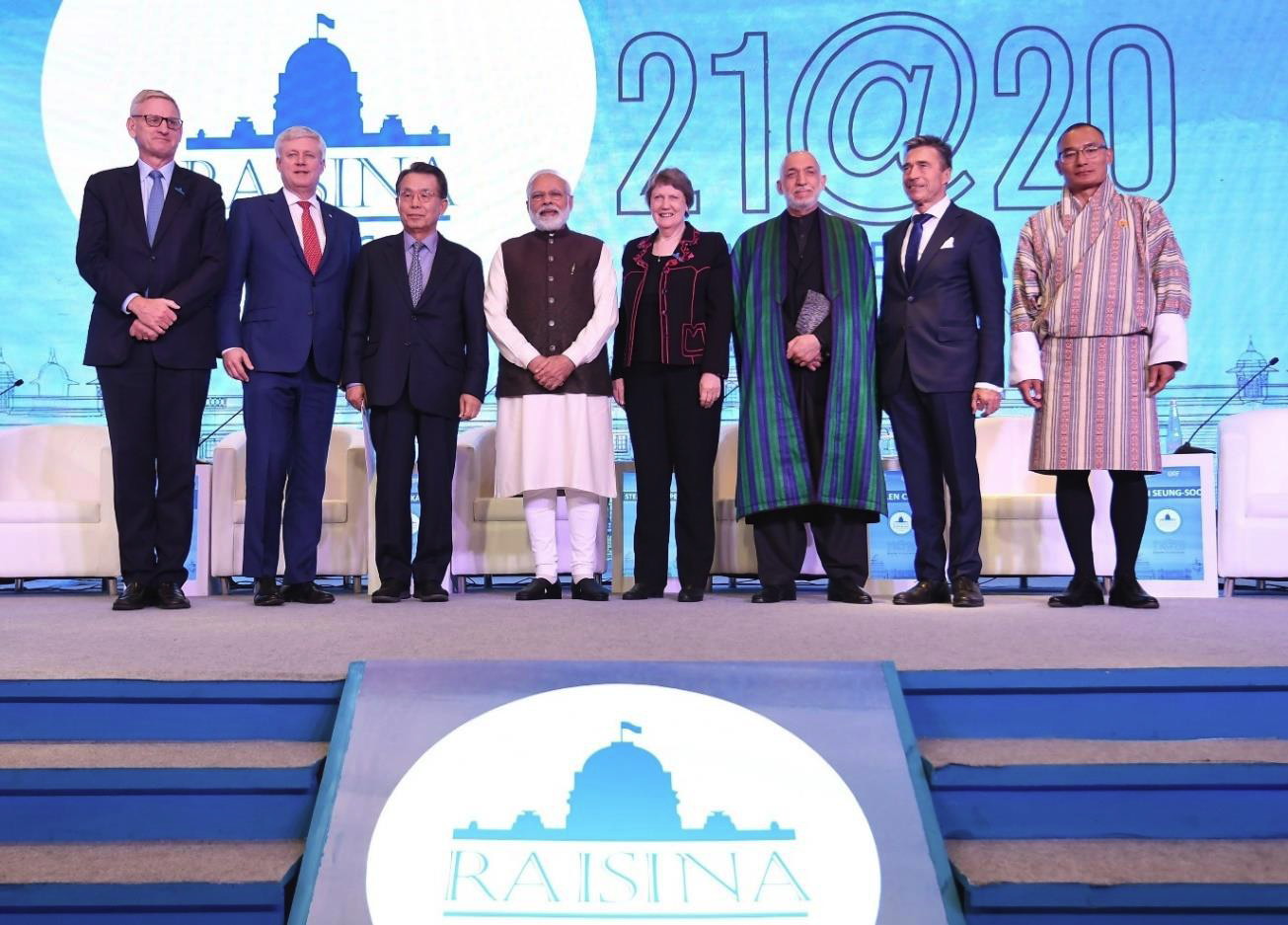
While delivering the vote of thanks, EAM Dr. S. Jaishankar noted that through the Raisina Dialogue, the Indian Foreign Policy seeks to achieve "a focus on key challenges, a broad engagement with many parties, and managing, if not leveraging, the global contradictions”.

Prime Minister Narendra Modi with former heads of states at the inaugural session of the 5th Raisina Dialogue 2O2O Source: MEA/Flickr
The Minister of Foreign Relations, Skill Development, Employment and Labour Relations of Sri Lanka, Mr. Dinesh Gunawardena, was on an official visit to New Delhi from January 8-10, 2019. This was the first overseas visit of the Sri Lankan Minister after taking charge in November 2019.
EAM Dr. S. Jaishankar hosted Mr. Gunawardena for talks on January 9, during which they discussed the entire gamut of bilateral relations and explored ways to further strengthen the close and friendly ties between India and Sri Lanka. The two Ministers also exchanged views on regional and global issues of mutual interest, including climate change and counter terrorism.

External Affairs Minister meets Dinesh Gunawardena, Minister of Foreign Relations of Sri Lanka at Hyderabad House, New Delhi on January O9, 2O2O Source: MEA/Flickr
On January 21, Prime Minister Narendra Modi and the Prime Minister of Nepal, K. P. Sharma Oli, jointly inaugurated the second Integrated Check Post (ICP) at Jogbani — Biratnagar over video link. The ICP was built with Indian assistance to facilitate trade and cross-border movement across the India-Nepal border. Prime Minister Modi remarked that ’Neighbourhood First' is Indian government’s main policy and improving cross border connectivity is an important aspect of it. Prime Minister Modi and Prime Minister Oli noted the progress made in building 45,000 out of the 50,000 houses in the Gorkha and Nuwakot districts of Nepal, as part of the relief operations post the 2015 earthquake. Prime Minister Oli thanked India for its assistance.
On January 10, EAM Dr. S. Jaishankar welcomed a delegation of Mongolian Governors led by the Chief Cabinet Secretary L. Own-Erdene. The visit marked the inaugurated of the new Indian Technical and Economic Cooperation (ITEC) programme, which is the flagship component of India's Development Partnerships for capacity development. The EAM also reviewed the growth of India — Mongolia Strategic Partnership and looked forward to the upcoming Joint Consultative Committee meeting between the two countries.
On January 3, Prime Minister Narendra Modi had a telephonic conversation with the Prime Minister of Australia, Mr. Scott Morrison. PM Modi conveyed his heartfelt condolences on the damage to life and property in Australia due to severe and prolonged bushfires and offered India's unstinted support to Australia. PM Modi also expressed his satisfaction at the progress in bilateral relations in recent years and reiterated India’s commitment to strengthen its strategic partnership with Australia.
On the occasion of the New Year, Prime Minister Narendra Modi had telephonic conversations with His Majesty Jigme Khesar Namgyel Wangchuck, The Druk Gyalpo of Kingdom of Bhutan; Lyonchhen (Dr.) Lotay Tshering, Prime Minister of Bhutan; Mr. Gotabaya Rajapaksa, President and Mr. Mahinda Rajapaksa, Prime Minister of Sri Lanka; Mr. Ibrahim Mohamed Solih, President of the Maldives; Ms. Sheikh Hasina, Prime Minister of Bangladesh; and Mr. K.P. Sharma Oli, Prime Minister of Nepal.
During his conversations, PM Modi emphasised India’s commitment to its ’Neighbourhood First' policy and the vision of shared peace, security, prosperity and progress for all of India’s friends and partners in the region. He noted the progress in bilateral relations with each of their neighbours and stressed the need to explore newer areas for working together.
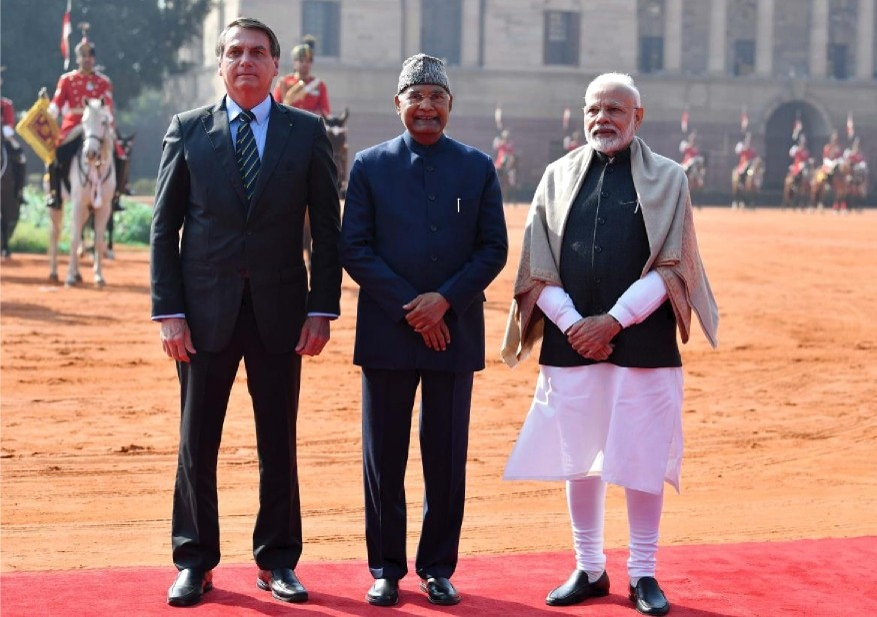
Prime Minister Narendra Modi spoke with President Donald Trump to convey his New Year greetings. During the conversation, the Prime Minister highlighted the significant progress made in deepening the Strategic Partnership between India and the United States in 2019 and expressed his desire to continue to work with President Trump for enhancing cooperation in all areas of mutual interest.
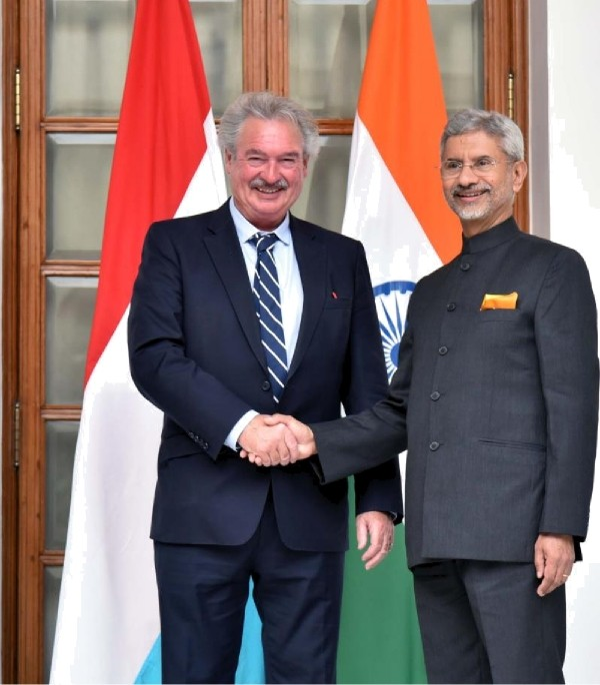
Minister of Foreign h European Affairs of the Grand Duchy of Luxembourg, Mr. Jean Asselborn paid an official visit to India on January 27-28, He and EAM Dr. S. Jaishankar reviewed the bilateral relationship between India and Luxembourg during their meeting and discussed ways to further ties in the areas of trade and economic cooperation, space, political and strategic relations and cooperation in multilateral forums and with the European Union.

EAM Dr. S. Jaishankar met Jean Asselborn, Minister of Foreign and European Affairs of Luxembourg at Hyderabad House, New Delhi on January 28, 2O2O. Source: MEA/Flickr
On January 15, Defence Secretary Dr Ajay Kumar and Permanent Secretary, Ministry of Defence of Finland Mr Jukka Juusti signed a Memorandum of Understanding (MoU) to advance defence cooperation between India and Finland. The MoU on co-operation in the field of Production, Procurement, Research and Development of Defence related Equipment and Industrial cooperation was inked on the sidelines of the Raisina Dialogue 2020. Under the broad ambit of the MoU, cooperation between Finnish companies and Indian Defence Public Sector Undertakings is to be explored.
On January 13, PM Modi had a telephonic conversation with the President of Russia, Mr. Vladimir Putin. The two leaders reviewed the India-Russia Special Privileged Strategic Partnership and expressed satisfaction at the significant landmarks that it has achieved in the recent past. Apart from the annual Summits of the Shanghai Cooperation Organisation (SCO) and the BRICS, the Prime Minister is also expected to participate in Russia’s 75th Victory Day Celebrations to be held in Moscow in May, 2020. Further, President Putin is expected to travel to New Delhi later this year for the 21st India-Russia bilateral Summit.
Prime Minister Narendra Modi had a telephonic conversation with the President of France, Mr. Emmanuel Macron on January 10, 2020. He recalled his earlier meetings with President Macron at Biarritz and Chantilly and also reiterated his commitment to further strengthen the Strategic Partnership between India and France. The two leaders exchanged views on a range of issues of mutual interest in bilateral relations as well as the regional and global situation.
On January 25, the eve of India’s 71st Republic Day, Prime Minister Narendra Modi received a telephone call from the Prime Minister of Israel Mr. Benjamin Netanyahu. The two leaders underscored the significance of the bilateral strategic partnership and reviewed the growth of cooperation in all spheres. Prime Minister Modi stressed the significance of initiatives in the areas of agriculture, water as well as start-ups and welcomed efforts to facilitate air connectivity between the two countries. The leaders also exchanged views on global and regional matters of mutual interest.
President of the Federative Republic of Brazil, Mr. lair Messias Bolsonaro, paid a State Visit to India from January 24 to 27 at the invitation of Indian Prime Minister Narendra Modi. President Bolsonaro was also the Chief Guest at India's 71st Republic Day Parade.
During his meeting with Prime Minister Modi on January 25, discussions covered cooperation in sectors such as energy, healthcare, technology, animal Husbandry and defence. Apart from robust bilateral cooperation, India and Brazil are also working together at various multilateral forums. This was Prime Minister Modi's third meeting with President Bolsonaro in the last eight months.

Jair Bolsonaro, President of Brazil along with the President of India Shri Ram Nath Kovind and Prime Minister Narendra Modi during the ceremonial welcome at Rashtrapati Bhawan on January 25, 2O2O. Source: MEA/Flickr
The Joint Statement issued during the visit called for strengthening the strategic partnership, enhancing broad-based defence cooperation, unlocking the potential in space cooperation, combatting crime and terrorism, cyber security cooperation, boosting economic cooperation through trade and investment and moving towards a more robust partnership in oil and gas, bioenergy and other renewable energy sources. The Joint Statement also laid stress on cooperation in science, technology and innovation; Health and traditional medicine; connectivity; people-to- people exchanges and culture.
15 MoUs/ Agreements were concluded between India and Brazil during the visit. These covered Bioenergy Cooperation, an Investment Cooperation and Facilitation Treaty, Mutual Legal Assistance in Criminal Matters, Agreement on Social Security and an Agreement on Cultural Exchange Programme between India and Brazil for the period 2020-2024. An Action Plan to strengthen the strategic partnership between India and Brazil was also released.
During his visit, President Bolsonaro also called on his counterpart President Shri Ram Nath Kovind and received Vice President Shri Venkaiah Naidu and the External Affairs Minister Dr. S. Jaishankar.
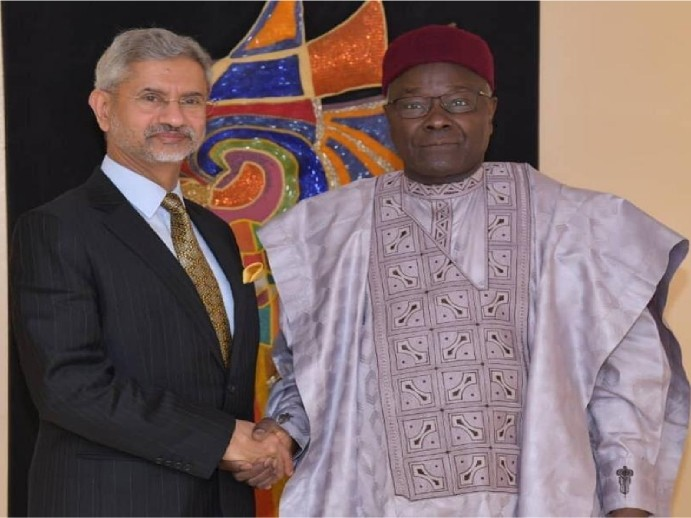
The Minister of International Relations and Cooperation of South Africa, Dr Naledi Pandor, co-chaired the 10th India-South Africa Joint Ministerial Commission (IMC) with External Affairs Minister, Dr. S. Jaishankar in New Delhi on 17th January 2020. The DMC reviewed the entire gamut of bilateral relations and ongoing cooperation in multilateral fora.
External Affairs Minister Dr. S Jaishankar visited Niamey, Republic of Nigel from 20-21January 2020. During the visit, be called on the President of Niger, H. E. Mahamadou Issoufou on 21 January and both leaders jointly inaugurated the Mahatma Gandhi International Convention Centre (MGICC). MGICC is the first centre to be established in Africa by India to honour the memory of Mahatma Gandhi, whose 150th birth anniversary was observed in 2019.
During his stay in Niamey, EAM also called on Prime Minister of Niger H. E. Brigi Rafini and held discussions on a wide range of bilateral, regional and global issues with his counterpart H. E. Kalla Ankourao, Minister for Foreign Affairs, Cooperation and Regional Integration of Niger.

EAM Dr. S. Jaishankar with his counterpart Kalla Ankourao of Nigeron January 21 in Niamey. Source: Twitter/Dr. S. Jaishankar
India's External Affairs Minister Dr. S. Jaishankar visited Tunisia on January 22-23 during which he met with his counterpart Sabri Bachtobji, Speaker Racked Ghannouchi and called on the President of Tunisia Kais Saed. The two sides discussed shared interests and common challenges and agreed to work closely in multilateral forums, especially the United Nations. The discussions also focused on expanding bilateral economic cooperation and included the signing of an agreement on Information and Communications Technology (ICT).
The Government of India, the Government of Assam and the World Bank signed a loan agreement of USD 88 million here today to help modernize Assam's passenger ferry sector that runs on its rivers, including the Brahmaputra. The project will support the Government of Assam’s efforts to corporatize its own ferry activities. The Assam Shipping Company (ASC) will operate the government ferries and the Assam Ports Company (APC) will provide terminals and terminal services on a common-user basis to both public and private ferry operators. The project will also help build modern ferry terminals.
Harsh Vardhan Shringla, who last served as India's Ambassador to the United States of America, took charge as the new Foreign Secretary of India on January 29 for a fixed two-year term, succeeding Vijay Gokhale. Speaking to reporters ahead of assuming charge, Shringla, a 1984-batch officer of the Indian Foreign Service (IFS), said he is very clear about the fact that Foreign Service is a public service and its every effort should be dedicated to contributing towards the nation in the form of its security and prosperity through external engagements.
In a career spanning 35 years, Shringla has previously served as the High Commissioner to Bangladesh and Ambassador to Thailand. He has also served in India’s Missions in France, Vietnam, Israel and South Africa as well as the Permanent Mission in New York. At headquarters, Shringla has served as Joint Secretary looking after India’s ties with Bangladesh, Sri Lanka, Myanmar and Maldives and has also headed the SAARC division.
The Ministry for External Affairs (MEA) is reportedly undertaking its biggest restructuring exercise in almost half a century. The new structure will witness the emergence of a series of ’verticals' such as economic and trade diplomacy, emerging strategic technologies, development partnership and consular issues and will be headed by “political directors” at the additional secretary level.1
The Ministry of External Affairs (MEA) has been allocated over Rs. 17,300 crores in the Union Budget which was presented on February 1, 2020. The total aid to countries remains near-constant at over Rs. 6,900 crores as compared to 2019-20 which includes Rs. 100 crores for the development of the Chabahar Port in Iran. While aid for Nepal was reduced from Rs. 1,200 crores to Rs. 800 crores, aid for Bangladesh, Maldives and Seychelles have been increased. The aid allocation for Bhutan has also gone up from Rs. 2,674.51 crores in 2019-20 to Rs. 2,884.65 crores for the next fiscal.
1Indrani Bagchi, “MEA starts its biggest internal rejig in 50 years”, Times of India, January 31, 2020. Link - https://timesofindia.indiatimes.com/india/mea-starts-its-biggest-internal-rejig-in-50-years/articleshow/73783309.cms


